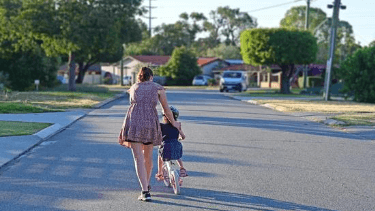Breaking the cycle of trauma and disadvantage: Transforming Corrections to Transform Lives

Sponsored by

Sponsored by

The causes and consequences of maternal imprisonment are rooted in a devastating cycle of intergenerational trauma and disadvantage. Mothers in custody—and their children—are among the most vulnerable members of society, but they often remain unseen by the greater community. While many agencies and individuals work tirelessly to provide them with crucial support, the growing number of women in prison is stretching these resources ever further.
But with the aid of a multi-million-dollar donation from the Paul Ramsay foundation, a team from Griffith University, headed by Professor Susan Dennison from the Griffith Criminology Institute, is leading a research project to end this cycle for good.
‘Prison doesn’t cause all the challenges these families face, but it does present an opportunity to start working with mothers and their children,’ Susan says.
‘Addressing the needs of these women and their families requires the transformation of correctional approaches in Australia to reduce recidivism and break the devastating and enduring intergenerational cycle of disadvantage.’
In collaboration with service providers, policy makers, researchers and the mothers themselves, the team has developed a new, evidence-based, holistic system of practice. The result is an intensive, trauma-informed continuity of care program that works with mothers and their children, both before and beyond release.
The program provides mothers with access to coaches to deliver ongoing therapeutic support and aid them in navigating the services they rely on. It also brings together government departments and the not-for-profit sector to address the many challenges these women and their families face.
These include education, learning and wellbeing support for children, child safety and youth justice, homelessness and housing instability, and continuity of physical and mental health care as mothers transition in and out of prison life.
‘We want to give them the opportunity to find meaning in their lives, reach their aspirational goals, to have choices and be empowered to make those choices that are important to them,’ Paul Ramsay Foundation CEO Professor Kristy Muir says.
‘This program is about...giving young mothers the opportunity to reach a better outcome, for themselves, but more importantly, for their kids.’